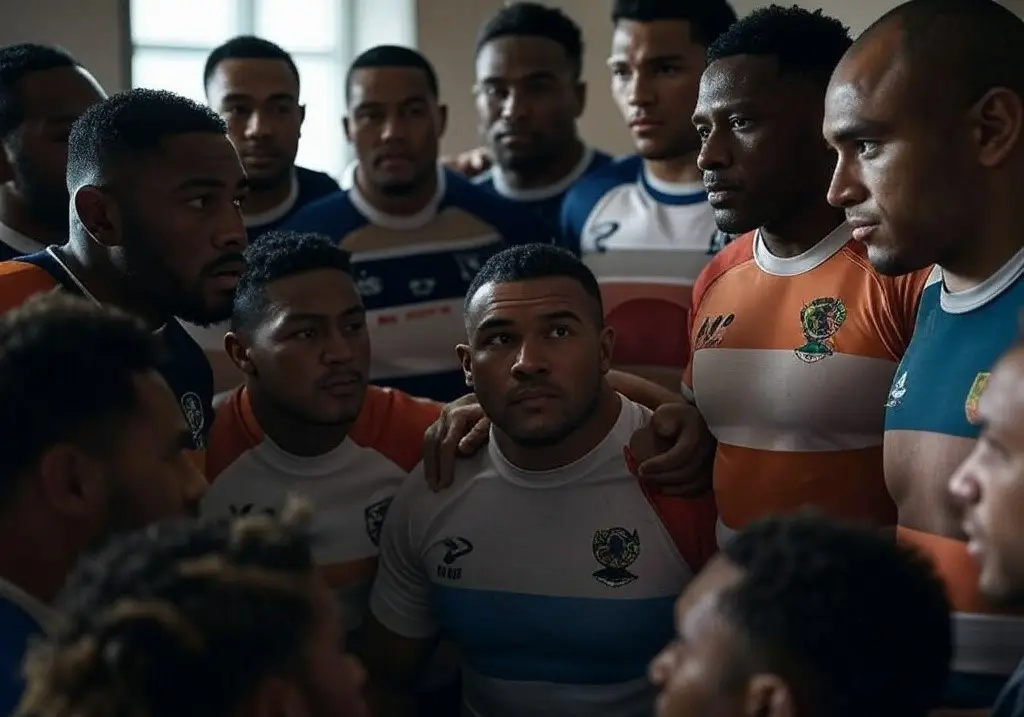How to Build Team Chemistry in Rugby Squads
Introduction
How to Build Team Chemistry in Rugby Squads
Team chemistry is the invisible force that transforms a group of individual athletes into a cohesive, high-performing rugby team. While technical skills, fitness, and strategy are crucial, it’s the trust, communication, and mutual respect among teammates that often determine whether a squad thrives under pressure—or falls apart.
Great rugby teams—like the All Blacks, Springboks, or England’s 2003 World Cup winners—didn’t just rely on talent. They built trust, communication, and camaraderie that allowed them to perform at their best when it mattered most.
In this guide, we’ll explore actionable strategies to foster team chemistry in rugby squads, covering:
The Importance of Team Chemistry in Rugby
Building Trust and Communication
Creating a Positive Team Culture
Team-Bonding Activities
Leadership’s Role in Fostering Unity
Handling Conflicts and Egos
Case Studies of Teams with Exceptional Chemistry
By the end, you’ll have a blueprint for developing a rugby squad that plays for each other—and wins together.
1. The Importance of Team Chemistry in Rugby
Rugby is a sport built on collective effort. Unlike individual sports, success depends on 15 players (or more in a squad) working in sync. Here’s why chemistry matters:
A. Better On-Field Communication
Players who trust each other communicate more effectively, leading to quicker decision-making.
Defensive organization and attacking plays flow smoother when teammates anticipate each other’s moves.
B. Increased Resilience Under Pressure
Teams with strong bonds fight harder in tight matches.
Adversity (injuries, conceding tries, bad calls) is easier to overcome when players support each other.
C. Higher Motivation and Commitment
Players work harder in training and games when they feel part of a brotherhood/sisterhood.
Team-first mentality reduces selfish play and improves discipline.
D. Long-Term Success
Teams that gel well sustain success across seasons, even with roster changes.
2. Building Trust and Communication
Trust is the foundation of team chemistry. Without it, players hesitate, communication breaks down, and performance suffers. Here’s how to build it:
A. Open and Honest Communication
Encourage players to speak up in team meetings and debriefs.
Leaders should foster an environment where feedback is constructive, not personal.
B. Accountability
Hold everyone to the same standards—no favoritism.
If a player makes a mistake, the team should focus on solutions, not blame.
C. Small-Group Bonding
Pair up players in training (e.g., forwards working together on scrums, backs on passing drills).
Strengthening smaller units (like the front row or halfback pairings) improves overall team cohesion.
D. On-Field Trust Exercises
Blindfolded passing drills (trusting teammates to guide you).
Defensive drills where players must rely on each other’s positioning.
3. Creating a Positive Team Culture
Culture is the personality of the team. A strong culture keeps players aligned and motivated.
A. Define Team Values
Establish core principles (e.g., “Work rate over talent,” “No excuses,” “Respect for all”).
Display these values in the locker room and reinforce them in speeches.
B. Inclusivity
Ensure new players feel welcomed (rookies, transfers).
Avoid cliques—veterans should mentor younger players.
C. Celebrate Effort, Not Just Results
Recognize big hits, selfless plays, and hard work, even in losses.
Highlight “Team Man of the Match” alongside individual awards.
D. Rituals and Traditions
Pre-game huddles, post-match socials, or team chants build identity.
Example: The All Blacks’ haka is a cultural ritual that unites the squad.
4. Team-Bonding Activities
Off-field bonding strengthens on-field performance. Here are some effective activities:
A. Social Events
Team dinners, BBQs, or casual hangouts.
Encourage players to bring families to create a community feel.
B. Community Service
Volunteering together (e.g., coaching kids, charity runs) builds humility and unity.
C. Team Challenges
Fitness competitions (e.g., beep test leaderboard).
Non-rugby challenges (e.g., cooking contests, trivia nights).
D. Rugby Camps and Tours
Pre-season tours or weekend training camps force players to rely on each other in new environments.
5. Leadership’s Role in Fostering Unity
Coaches and captains set the tone for team chemistry.
A. Lead by Example
Captains should be the hardest workers in training.
Coaches must treat all players fairly.
B. Empower Player Leaders
Not just the captain—identify leaders in different positions (e.g., a vocal scrum-half, a calming lock).
Let players take ownership (e.g., leading warm-ups, organizing socials).
C. Transparent Decision-Making
Explain team selections and tactics so players understand their roles.
Avoid surprises that could create resentment.
6. Handling Conflicts and Egos
Even the best teams face disagreements. Managing them is key.
A. Address Issues Early
Don’t let small conflicts fester—mediate privately if needed.
B. Encourage Healthy Competition
Competition for spots is good, but emphasize that the team comes first.
C. Manage Star Players
Big personalities can disrupt chemistry if they’re not team-first.
Challenge them to lift others up, not just perform individually.
7. Case Studies of Teams with Exceptional Chemistry
A. The All Blacks (2011-2015 Dominance)
Their “No Dickheads” policy ensured only team-first players were selected.
Strong cultural rituals (haka, leadership groups) kept the squad unified.
B. South Africa’s 2019 World Cup Win
Siya Kolisi’s leadership united a racially diverse team under a common goal.
The “Stronger Together” mantra emphasized collective over individual success.
C. Leicester Tigers’ Premiership Success (2022)
Built on a core of homegrown players who grew up playing together.
Steve Borthwick’s culture of hard work and accountability.
Conclusion
Team chemistry isn’t built overnight—it requires intentional effort from coaches, leaders, and every player. By fostering trust, communication, and a positive culture, your rugby squad can develop the kind of unity that leads to wins on the field and lifelong bonds off it.
Start small: organize a team dinner, reinforce core values, and encourage players to support each other. Over time, these efforts will transform a group of individuals into an unstoppable team.
What’s your experience with team chemistry in rugby? Share your thoughts in the comments!
